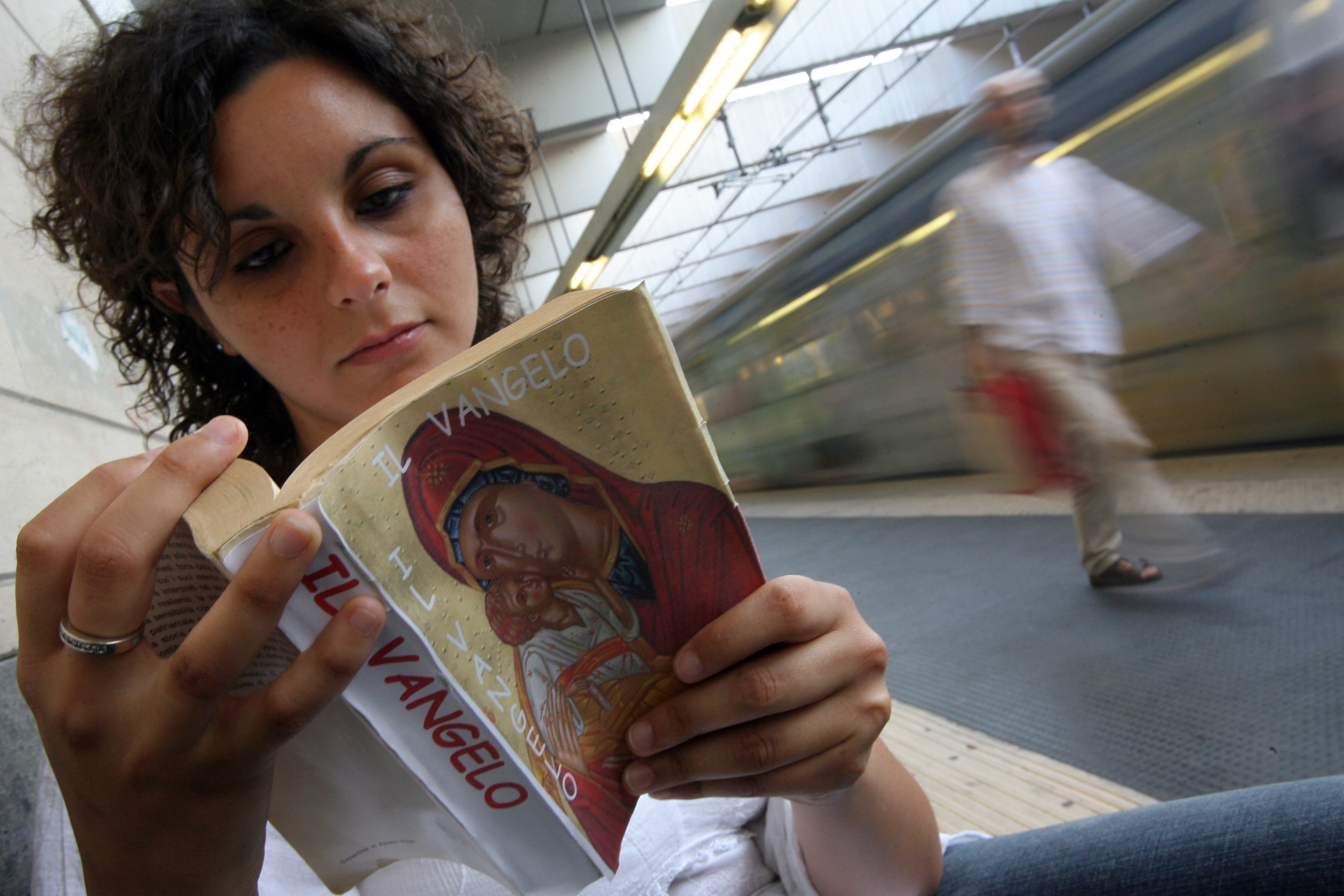To reflect
Maybe the time has come to live the Gospel sine glossa. This choice will bring us to willingly leave the sacristies, convents, decision-making halls, self-referential environments, administrative concerns, our reassuring groups, etc. The Gospel will guide us along the roads of the world, to bear witness to the truth that the Son of God became flesh and lived amongst us

Nowadays we are used to reading the term ‘provoke’ as one verb. This term encompasses a set of negative meanings linked to causing aggressive or unwelcome actions and reactions. It’s the typical verb expressing arrogant protest, whether or not intellectual. When we think of provocation we immediately picture one of the many TV-shows where someone tends to stretch the truth disguised as fine intuition, aimed at stimulating and then analysing the reactions. Thus saying that something is provocative ends up becoming a cheap alibi for those who instead of apologizing prefer conferring spurious intelligence to incorrect conduct. Yet the etymology of the word “pro-voke” is clear: it comes from pro- ‘forth’ + vocare ‘to call’. Thus if we write it separately and examine its original meaning it becomes an exhortation to draw something out of ourselves. Something good. Why are Christians invited to let themselves be provoked by the Gospel? Because we acknowledge that we are living out the Gospel, because we allow ourselves to be distanced from mundane issues, because we find what is good and beautiful inside us. Pro-voking calls us to the truth of life, it drives us forth: a Church that goes forth, that summons us and calls us to bear witness. If we let ourselves be called it also means that our attitude is one of listening and that we have heard our own name. With this spirit today begins this new column named Pro-Voked by the Gospel, in which once a month a Poor Clares nun will help us find the path to understand that letting oneself be pro-voked means to no longer lower oneself in dissent for pseudo-intellectual purposes or as alibis for brawls, but rather to reflect in silence and listen to the call of the Lord.
We’re at the beginning of a new year and a new path lies ahead of us. We don’t know what 2018 holds for us, which choices the way enlightened by Jesus Christ and the Gospel, the meaning of life, will help us make, step after step.
Like all human beings, at this time, we too as Christians come across a story that is often starred with unknown elements. It may also happen to experience a kind of confusion that makes us lose the borders of our existence or that makes us perceive monads scattered in space and not in time: we don’t know where we are or where we are going. We fill our life with commitments, and in the name of the things done for God we cause the atrophy of the humanity that was donated to us and of the ability to be able to relate.
By divesting life in the present moment we fail to shape our existence on God’s presence and fail to constantly refer to the threshold of the Mystery and to relate to the men and women of our times. While we complain for lack of time we are actually stripping it of meaning.
How can we witness to the incarnation of Christ and make visible the closeness of God to humanity, if we are not always in touch with our life inhabited by the Spirit and in an attitude of openness to every relationship?
In this vortex we risk becoming bureaucrats of all that is holy, focusing on carrying out specific roles: we plan , organize conferences, take part in round tables, draw up documents, etc. Sometimes these events remain unfinished workshops, especially when the findings are not reviewed, when the content, instruments and methods are not assimilated to plan new options at a later stage.
What should be done so as not to identify the Gospel with mental processing mechanisms and be engaged to live according to the Gospel? How can we chose to make our hands dirty with those living material and existential peripheries, who often bear witness to the love of life that we risk theorizing about? How can we share with them also our experience of relations, as a reflection of Trinitarian love, that leads us to welcome all others simply because they belong to the human family?
Maybe it’s time to live the Gospel sine glossa. This choice will bring us to willingly leave the halls of buildings, sacristies, convents, decision-making rooms, self-referential environments, administrative concerns, reassuring groups, etc. The Gospel will guide us on the roads of the world, to credibly bear witness to the truth that the Son of God became flesh and made his dwelling among us (Cf. Jn 1:14). Jesus sends us forth to the men and women of our times, to share with them, even if they are distant from our own stories, the respect for the value of existence, of the human person and of relational life.
By learning from the relationship with the Lord the art of bestowing unconditional love to every person, we are called to live the “mysticism of encounter” (Pope Francis.) Only then can we inhabit with passion the grounds of humanity animated by the Spirit: while we feel part of the universe and the fragment that is harmonized with everything in God’s presence we become people who are able to share the beauty of life with everyone else, while always relating to others, as Jesus did. It is key to our credibility and witness.
(*) Abbess, Poor Clares Monastery, Otranto